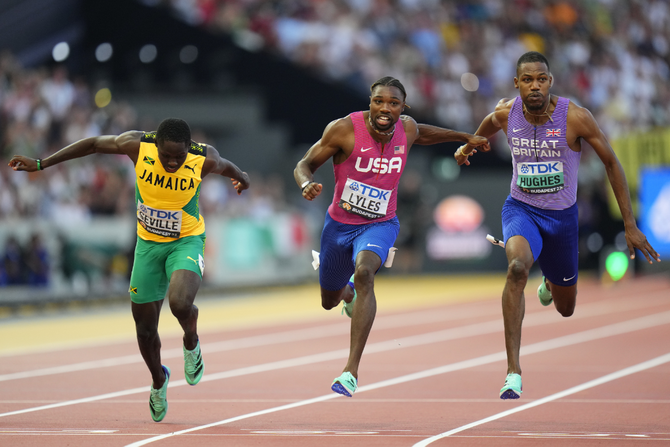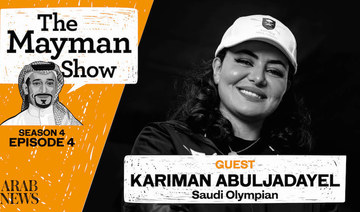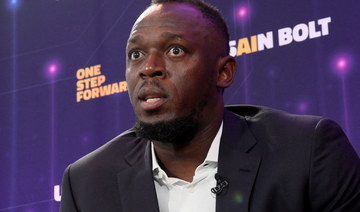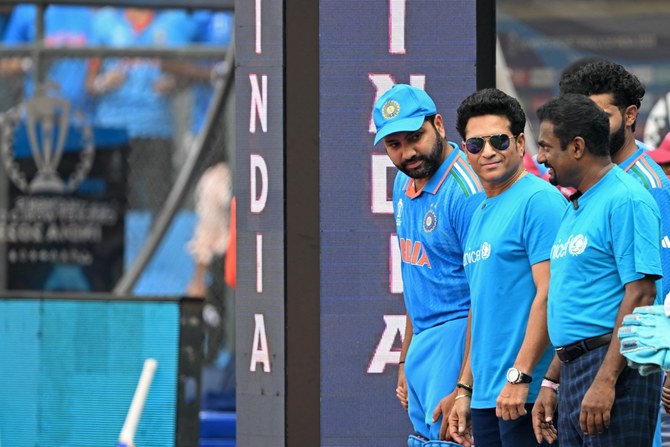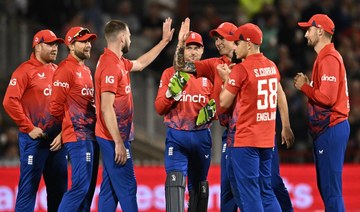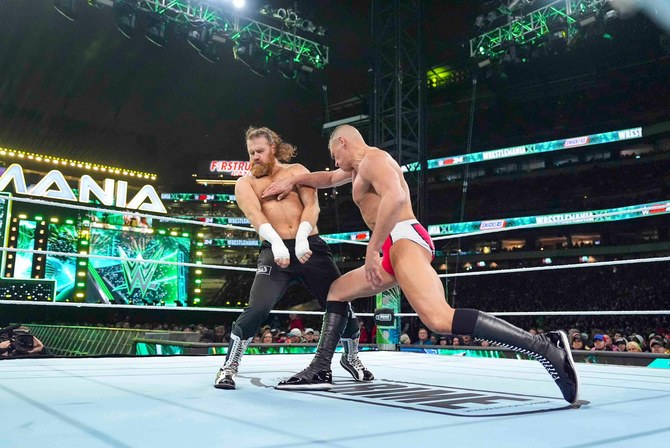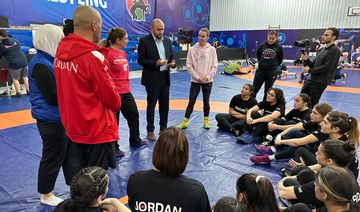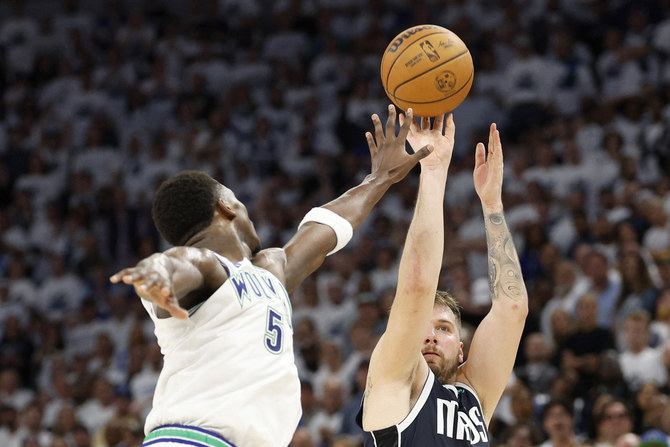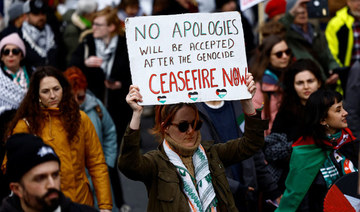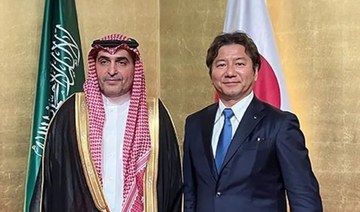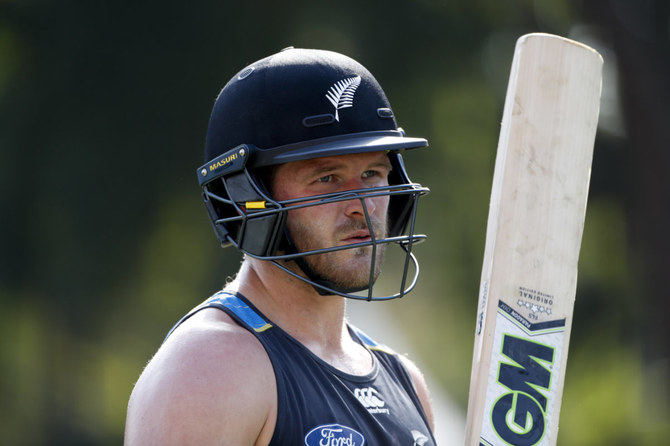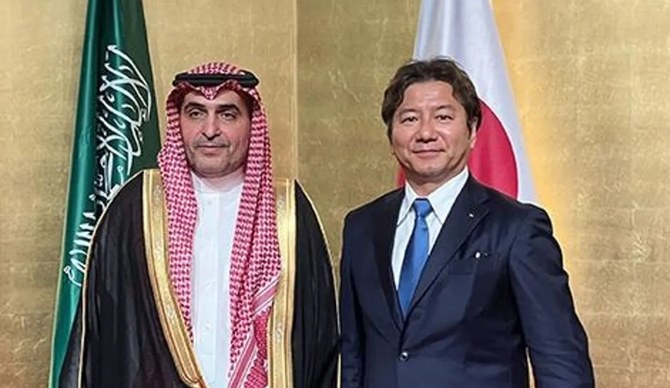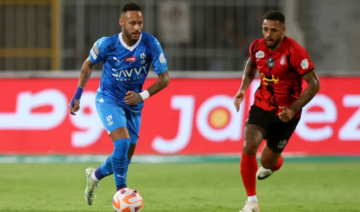BUDAPEST: Noah Lyles stormed to victory to win the 100m world title on Sunday and then set his sights on a third successive 200m crown, something Joshua Cheptegei achieved in the 10,000m.
Lyles, the charismatic 26-year-old American who has battled depression, had said he was mentally in a good place coming into the World Athletics Championships in Budapest.
It showed as he clocked 9.83sec — the fastest 100m time of the year — in front of Hungarian Prime Minister Viktor Orban and Turkish President Recep Tayyip Erdogan.
The blue riband event of the track was guaranteed a new champion after 2022 victor Fred Kerley followed Tokyo Olympics gold medalist Marcell Jacobs in failing to make the final.
“They said it couldn’t be done. They said I wasn’t the one,” said Lyles after forcing his way to the line first. “But I thank God I am.”
Cheptegei produced a magisterial display in what might be his final track championships as the Ugandan became the fourth man in history to win three successive world 10,000m titles.
“I am very excited and proud that I have succeeded in winning my third world title in a row,” said Cheptegei.
“This was the best possible way to end the season. This might be my last championships at the track, that’s why this gold medal means even more.”
Hungary traditionally has revered more the throwers than the runners and Bence Halasz did not let his nation down as he set the pace in the men’s hammer final with his first throw of 80.82m.
The 26-year-old brought the crowd to their feet and raised the decibel levels on what is the country’s national holiday, St. Stephen’s Day, but eventually had to settle for bronze.
Canada’s Ethan Katzberg took a surprise gold with 81.25m, with Poland’s Wojciech Nowicki taking the silver in 81.02.
“It was amazing. To win in a place that values throwing events is a dream come true,” said the 21-year-old Canadian.
While there were beaming smiles from Lyles, Cheptegei and Katzberg there were tears of joy for British heptathlete Katarina Johnson-Thompson as she regained her world crown.
“I just knew I could prove to myself and prove to all the people that I could still do it,” said Johnson-Thompson, who had suffered injury misery after her 2019 success in Doha.
“This is the culmination of so much hard work. I’m so happy I’m crying,” she said.
“I can’t help it. I can’t take it in, it’s making me emotional.
“I’ve won medals before but this means so much.”
The lack of atmosphere in the stands for some of the track events prompted a response from Norway’s 1500m Olympic champion Jakob Ingebrigtsen as he took command of his semifinal.
“I thought the audience was sleeping and that is why I raised my hands before the finish line,” he said.
Jamaican sprint legend Shelly-Ann Fraser-Pryce will pray the same fate does not befall her as it did Kerley.
The 36-year-old looked in decent shape as she coasted into Monday’s 100m semis and moved a step closer to equalling pole vaulter Sergey Bubka’s record of six titles in the same event.
“I think I have the strength to give my best in the semis and hopefully in the final as well,” Fraser-Pryce said.
In-form American rival Sha’Carri Richardson set the fastest qualifying time of 10.92sec while another Jamaican contender, Shericka Jackson, also cruised through her heat.
Faith Kipyegon is another who can dream of a third world crown — though not successive ones — as the Kenyan phenomenon breezed into Tuesday’s 1500m final.
The 29-year-old will face perennial rival Sifan Hassan, the Ethiopian-born Dutch runner having rebounded from her traumatic fall in the closing meters of Saturday’s 10,000m final.
“It really hurts everywhere but mentally I’m good,” said Hassan.
“I don’t have any special expectations for the final.”
Amid the raucous cheers for Halasz and the men’s 100m, Serbia’s Ivana Vuleta won a barely noticed women’s long jump with a best of 7.14m on her fifth attempt.
American Tara Davis-Woodhall claimed silver with 6.91m and Romania’s Alina Rotaru-Kottman snatched bronze from Nigerian Ese Brume with her last jump of 6.88.



